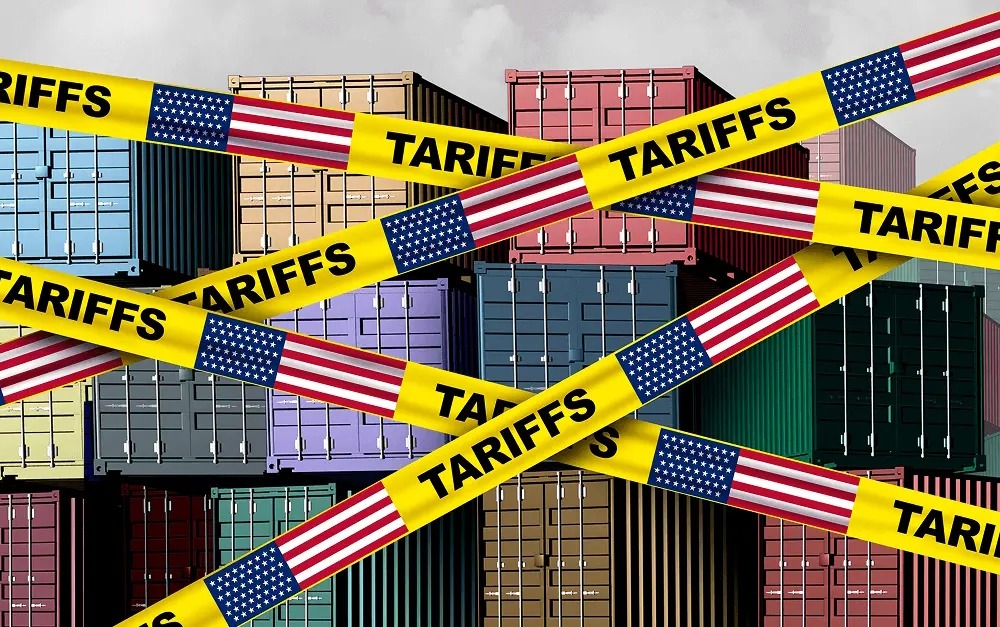Trump tariffs to offset foreign levies on IT companies

Trump considers imposing tariffs to mitigate the impact of foreign taxes on technology companies On Friday, President Trump convened with Vice President JD Vance and U.S. Commerce Secretary Howard Lutnick in the Oval Office.
On Friday, President Trump issued a presidential memo instructing his administration to assess the imposition of tariffs on trading partners that impose taxes and regulations on American technology firms, targeting a significant trade grievance for corporations such as Meta and Google. “The actions being taken against us in other nations regarding digital matters are quite alarming,” Trump stated in the Oval Office on Friday.
The memorandum instructs the U.S. Trade Representative’s office to reactivate tariff investigations initiated during the Trump administration concerning nations that implement digital services taxes, as outlined in a fact sheet released by the administration. These nations comprise specific member states of the European Union, alongside Canada, India, and several others. Trump has consistently contended that these taxes disproportionately affect American companies. During this month’s confirmation hearing on Capitol Hill, Jamieson Greer, the nominee for U.S. Trade Representative, expressed opposition to digital service taxes.
The memorandum instructs agencies to extend their focus beyond taxation and to formulate strategies to address foreign technological regulations, alongside “unjust fines, practices, and penalties that hinder the operational capacity of American enterprises,” according to the fact sheet. The White House did not promptly specify the timeline for the investigations. Trump has initiated several reviews of trade policy, with a deadline set for completion by April 1.
Imposing penalties on nations that tax American technology companies would resolve a persistent grievance for Silicon Valley, which has faced scrutiny from various countries through digital services taxes and antitrust probes in recent years. In 2019, the U.S. Trade Representative under Trump launched investigations into digital taxes imposed by France, Italy, Spain, India, and several other countries, concluding that these measures were discriminatory against American companies. However, the Biden administration refrained from taking action on the issue, provoking widespread criticism from both the technology sector and Republican lawmakers on Capitol Hill.
The return of Trump to office has increased the likelihood of forthcoming initiatives. Trump has employed aggressive strategies to respond to digital services taxes in the past, exemplified by his threat to levy tariffs on French wines and champagnes should Paris fail to retract its tax. President Emmanuel Macron initially yielded, yet France has subsequently implemented a digital services tax that may once again attract the scrutiny of Trump.
Greer, the nominee for trade under Trump, informed senators earlier this month that the United States “should not be outsourcing our regulation to the European Union or Brazil or anyone else.” Discrimination against us is unacceptable and will not be permitted. Trump’s maneuvers regarding digital trade emerge concurrently with Silicon Valley’s strategic efforts to align itself with the incoming administration. On Friday, Trump informed reporters of his recent meeting with Apple CEO Tim Cook, revealing that the company intends to “invest hundreds of billions of dollars” in the United States—a statement that remains unverified by the company.
In a distinct move, the USTR has declared the initiation of a comment period regarding possible tariffs or alternative trade measures targeting the Chinese shipbuilding sector, which is perceived by the U.S. and other nations as being unjustly supported by Beijing. On its final day in office, the Biden administration advised measures targeting the Chinese sector. The statement from the USTR suggests that the Trump administration intends to establish its own findings on the matter prior to taking action.
Nikki Bailey
Nikki Bailey reports on US Stocks. She covers also economy and related aspects. She has been tracking US Stock markets for several years now. She is based in New York










